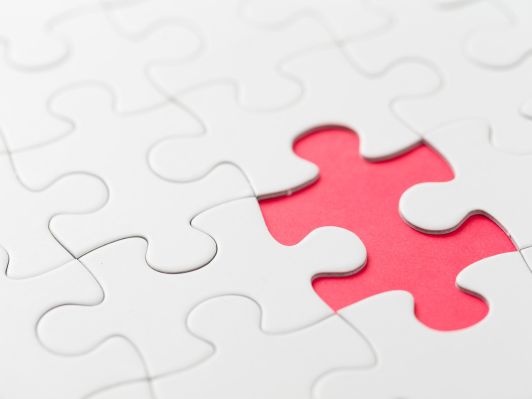Why has my credit score gone down? It’s a question that can leave you feeling puzzled and concerned. Your credit score is a crucial factor. Lenders use to assess your financial health. It can determine your creditworthiness.
So, when this score takes a hit, it can have far-reaching impact. Whether you have experienced a sudden drop in your credit score. Or are simply curious about the factors that affect it. This blog will guide you through the maze of: credit reference agencies. Credit accounts. And credit reports.
Table of Contents
9 reasons why your credit score has gone down
There may be several reasons for a drop in your credit score. Here are some common factors that can affect credit scores:
1. Increased credit card spending

Excessive credit card spending can lead to increased debt. This can have long-term consequences for your credit score. Building a significant amount of debt near or beyond your credit card limit. Or struggle to make timely payments. It can negatively impact your credit rating.
Here is our detailed guide on how to pay off your credit card debt fast.
2. Missed or late payments

Payment history plays a pivotal role in determining credit score. Consistently missing payments. Or making payments late can negatively impact your credit score. Credit reference agencies pay close attention to your payment behaviour. They promptly update your credit report when a payment is missed or delayed.
To lenders, any missed payments or delayed payments indicate a potential risk. They may interpret this behaviour as an inability. Or an unwillingness to fulfil your financial obligations. Consistently making payments on time is vital to maintaining a good credit score.
3. Increased credit utilisation ratio
Credit utilisation rate refers to the proportion of your credit usage out of the available credit. You get this by dividing your outstanding credit card balances by your total credit limits. A high credit utilisation ratio can negatively impact your credit score. To mitigate this risk, keep your credit utilisation ratio below 30%.
4. Recent credit applications
When you apply for new credit. Such as a loan or a credit card. Lenders conduct credit checks, They do this to assess your creditworthiness.
These credit checks result in “hard inquiries” on your credit report. While a single inquiry may have a minimal negative impact on your credit score. Applying for multiple loans will lead to multiple inquiries. Within a short period which can raise concerns among lenders.
Frequent credit applications might indicate financial instability. Or desperation. Making you appear as a potentially higher credit risk. To protect your credit score, be mindful of applying for new credit only when necessary.
5. Negative information on a credit report
Your credit report is a comprehensive record of your credit history. It includes any negative marks such as defaults. Or County Court Judgements (CCJs). Or any involvement with debt collection agencies. These adverse noting can significantly impact your credit score. It can make you appear a less reliable borrower to prospective lenders.
If you have negative information on your credit report, it’s crucial to address it promptly. Contact the concerned parties, such as creditors or debt collectors. Discuss repayment options or negotiate settlements, if feasible.
Here is our detailed guide on how long does a CCJ stay on your credit file.
6. Closing old accounts
While closing an old credit account, may seem like a responsible financial decision. It can negatively affect your credit score. Closing an old account reduces your total available credit limit. It can increase your credit utilisation ratio. Additionally, it may shorten your average account age. This is another factor considered when calculating credit scores.
7. Recent change in address
When you move to a new place, it can take time for your new address to be updated. There are several financial accounts and credit bureaus. Delays or missed bills during this transition period can hurt your credit score.
It’s important to promptly update your address. Do this with all your financial institutions. This can help avoid any potential problems.
8. Wrong information on your credit report

Errors in your credit report can negatively impact your credit score. These errors can vary. It could be incorrect personal information. Or inaccurate account details to payment statuses.
Reviewing your credit report regularly allows you to identify any inaccuracies. It allows you to take steps to correct them. Disputing the errors with the credit bureaus can help you rectify them and thus improve your credit score.
9. Having an account with someone with bad credit history
If you have a joint bank account. Or shared credit with someone who has a history of bad credit. It can harm your credit score. Late payments. High credit utilisation. Or defaulting on shared accounts. Can all lower your creditworthiness.
It’s important to be cautious when entering into joint credit agreements. Make sure that both parties to financial agreements are responsible and diligent in managing the shared accounts.
How to fix your credit score when it goes down
Now that we understand some of the reasons behind a credit score drop. Let’s explore steps you can take to reduce credit risk. Regain control of your financial health. And improve your credit profile:
1. Review your credit report
Obtain a copy of your credit report from each of the major credit reference agencies. These are: Equifax, Experian, and TransUnion. Review the information carefully to ensure its accuracy. Look out for any errors, discrepancies, or fraudulent activity.
If you spot any inaccuracies, contact the credit reference agency immediately. Monitoring your credit report regularly allows you to stay informed. It helps you understand your credit standing. It lets you take swift action to address any adverse issues.
2. Pay your bills on time
Making payments on time is one of the most significant factors that contribute to a good credit score. Ensure that you pay all your bills, loans, and credit card balances promptly. Consistently making timely payments on your credit accounts is crucial for maintaining a good credit score. Set up payment reminders or consider automated payments to avoid missing due dates.
It will help you stay on top of your financial obligations. Building a track record of consistent, on-time payments will demonstrate your reliability as a borrower. It will positively impact your credit score over time.
3. Avoid frequent credit applications
As discussed earlier, multiple credit applications within a short period can raise red flags for lenders. Be selective when applying for new credit and only do so when necessary.
Before submitting any applications, thoroughly research and compare different options. So you can choose the best fit for your needs. By reducing the number of credit inquiries on your report, you can help maintain a more stable credit score.
4. Build a diverse credit mix
Having a diverse credit mix can positively influence your credit score. It shows that you can handle different types of credit responsibly. Consider diversifying your credit portfolio by having a mix of: credit cards, loans, and other types of credit accounts.
Keep in mind that opening new accounts solely to improve your credit mix may not be beneficial. Especially if you cannot manage them responsibly.
5. Address negative remarks
If you have adverse remarks on your credit report, such as defaults or CCJs, it is crucial to address them. Contact the concerned parties to discuss repayment options or negotiate settlements. Once resolved, keep records of the resolution and request updates to your credit file.
6. Manage your financial associations
Financial associations, such as joint accounts or shared credit, can impact your credit score. If you are linked to someone with a poor credit history, minimising or severing these ties may help.
Be cautious when either closing accounts or joint accounts. It should be done with the agreement and understanding of all parties. And any potential financial difficulties involved.
7. Protect your identity
Identity theft and identity fraud can have severe consequences on your credit score. Regularly monitor your credit report for any unauthorised access or suspicious activity.
Consider implementing security measures. Including using strong passwords, regularly updating your devices and software. Avoid sharing sensitive information online.
Conclusion
A good credit score is essential for benefitting from favourable financial opportunities. However, if you notice a drop in your credit rating, do not panic. By understanding the factors contributing to a credit score decrease. By taking proactive steps to address them. You can regain control of your financial reputation and become a reliable borrower.
FAQs
Why did my credit score go down when nothing changed?
Your credit score can go down even if nothing has changed due to several factors. These may include changes in the scoring model. Updates to your credit report by lenders. The expiration of positive information. Or an increase in your credit utilisation ratio. Monitoring your credit report regularly can help identify and address any potential issues.
Why is my credit score going down if I pay everything on time?
Is your credit score is going down despite paying everything on time? Possible reasons could be high credit utilisation. Lack of credit mix. A short credit history. Recent hard inquiries. Negative marks. Or errors on your credit report.
How do you find out why your credit is going down?
To find out why your credit score is going down, obtain your credit reports from Equifax, Experian, and TransUnion. Analyse the reports for inaccuracies. Late payments. Accounts in collections. Or other negative marks affecting your score.
Should I be worried if my credit score goes down?
While a drop in your credit score may be a cause for concern, it’s essential to analyse the reasons behind it. If the decline is due to missed payments or high credit utilisation, it’s crucial to take corrective action. If it’s a minor fluctuation. Or due to factors beyond your control. For example changes in the scoring model. It may not be a cause for immediate alarm.
Disclaimer: The information given above is provided for information purpose only. This is not financial advice.
Related guides:
Why Is My Credit Score Different On Different Sites

